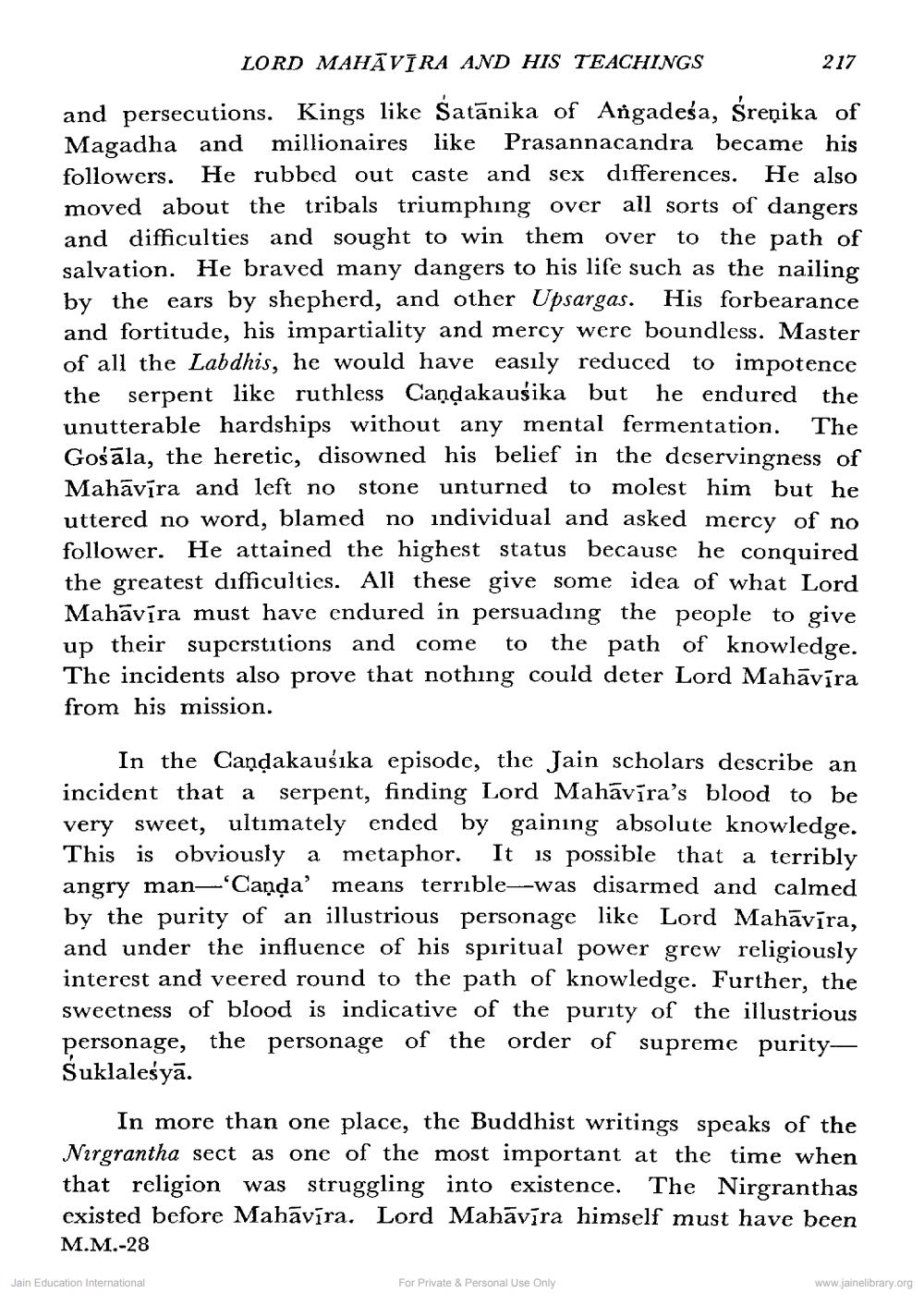________________
LORD MAHĀVĪRA AND HIS TEACHINGS
217 and persecutions. Kings like Satānika of Argadeśa, Śreņika of Magadha and millionaires like Prasannacandra became his followers. He rubbed out caste and sex differences. He also moved about the tribals triumphing over all sorts of dangers and difficulties and sought to win them over to the path of salvation. He braved many dangers to his life such as the nailing by the ears by shepherd, and other Upsargas. His forbearance and fortitude, his impartiality and mercy were boundless. Master of all the Labdhis, he would have easily reduced to impotence the serpent like ruthless Caņdakausika but he endured the unutterable hardships without any mental fermentation. The Gośāla, the heretic, disowned his belief in the deservingness of Mahāvīra and left no stone unturned to molest him but he uttered no word, blamed no individual and asked mercy of no follower. He attained the highest status because he conquired the greatest difficulties. All these give some idea of what Lord Mahāvīra must have endured in persuading the people to give up their superstitions and come to the path of knowledge. The incidents also prove that nothing could deter Lord Mahāvīra from his mission.
In the Caņdakausika episode, the Jain scholars describe an incident that a serpent, finding Lord Mahāvīra's blood to be very sweet, ultimately ended by gaining absolute knowledge. This is obviously a metaphor. It is possible that a terribly angry man—'Caņda' means terrible-was disarmed and calmed by the purity of an illustrious personage like Lord Mahāvīra, and under the influence of his spiritual power grew religiously interest and veered round to the path of knowledge. Further, the sweetness of blood is indicative of the purity of the illustrious personage, the personage of the order of supreme puritySuklaleśyā.
In more than one place, the Buddhist writings speaks of the Nurgrantha sect as one of the most important at the time when that religion was struggling into existence. The Nirgranthas existed before Mahāvīra. Lord Mahāvīra himself must have been M.M.-28
Jain Education International
For Private & Personal Use Only
www.jainelibrary.org




